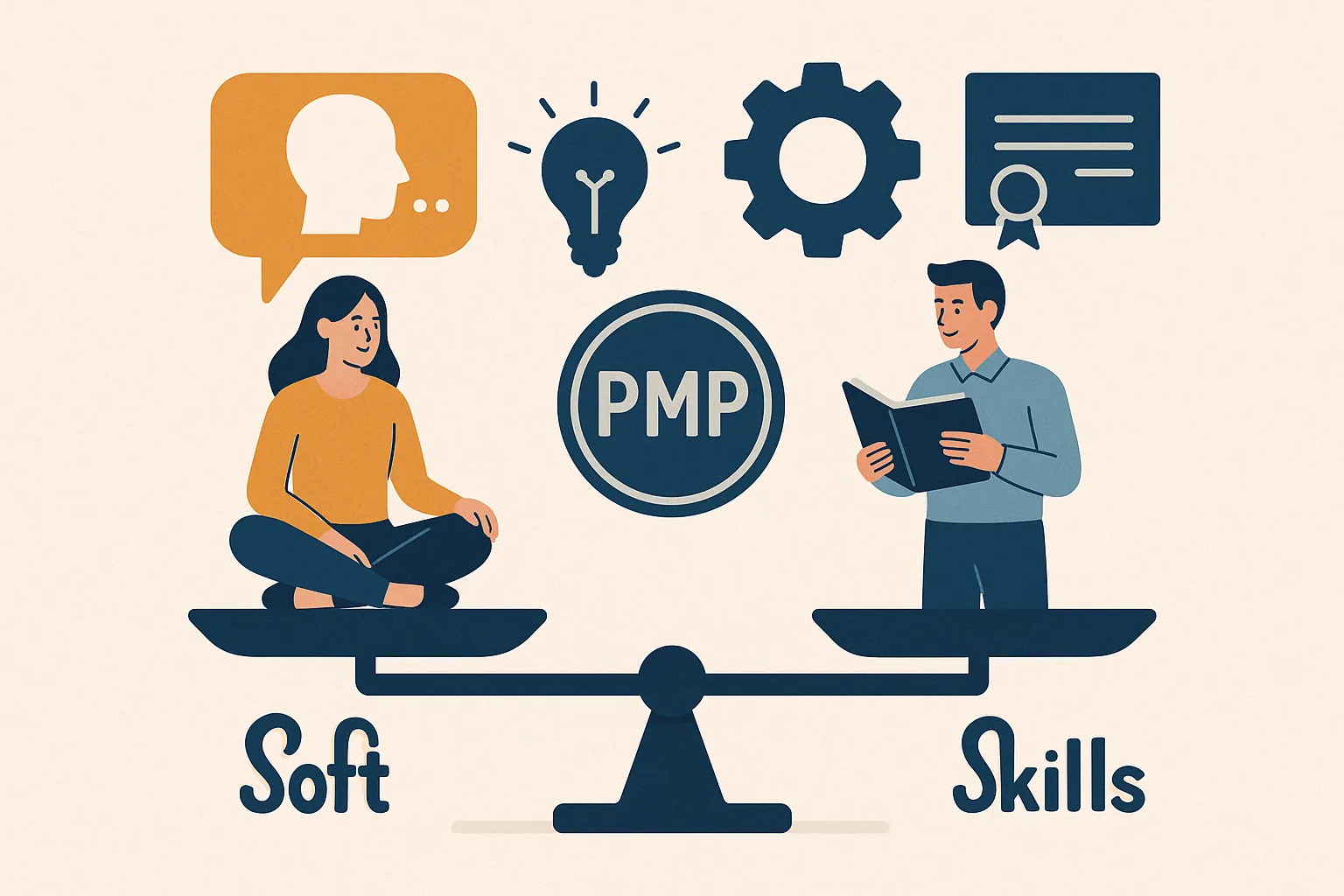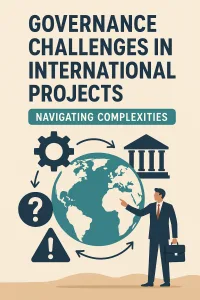Introduction to PMP Certification
The Project Management Professional (PMP) certification is a globally recognized credential offered by the Project Management Institute (PMI). It signifies that an individual possesses the knowledge, experience, and skills necessary to lead and direct projects effectively. As project management continues to evolve, the PMP certification has become a benchmark for project managers seeking to validate their expertise and enhance their career prospects.
Definition of PMP Certification
PMP certification is designed for professionals who manage projects and teams. It encompasses a comprehensive understanding of project management principles, methodologies, and best practices. The certification process involves meeting specific educational and professional experience requirements, followed by passing a rigorous exam that tests a candidate’s knowledge across various domains of project management.
Importance of PMP Certification in the Project Management Field
The significance of PMP certification cannot be overstated. It serves several critical functions in the project management landscape:
- Credibility and Recognition: PMP certification is recognized worldwide, providing professionals with a competitive edge in the job market. Employers often prefer or require PMP certification for project management roles, as it demonstrates a commitment to the profession and adherence to industry standards.
- Enhanced Skills and Knowledge: The certification process equips candidates with essential project management skills, including planning, execution, monitoring, and closing of projects. It also covers various methodologies, such as Agile and Waterfall, enabling project managers to adapt to different project environments.
- Networking Opportunities: Becoming PMP certified opens doors to a vast network of professionals in the field. This network can provide valuable resources, mentorship, and opportunities for collaboration, further enhancing a project manager’s career trajectory.
Overview of the Skills Required for PMP Certification
Achieving PMP certification requires a blend of hard and soft skills, which are crucial for effective project management.
- Hard Skills: These are technical skills that can be measured and quantified. They include:
- Project Planning and Scheduling: Understanding how to create project plans, timelines, and schedules.
- Risk Management: Identifying potential risks and developing strategies to mitigate them.
- Budgeting and Cost Management: Managing project budgets and ensuring financial accountability.
- Quality Management: Ensuring that project deliverables meet the required standards and stakeholder expectations.
- Soft Skills: These are interpersonal skills that facilitate effective communication and collaboration. They include:
- Leadership: Inspiring and guiding teams towards achieving project goals.
- Communication: Effectively conveying information to stakeholders and team members.
- Negotiation: Navigating conflicts and reaching agreements that satisfy all parties involved.
- Emotional Intelligence: Understanding and managing one’s emotions and those of others to foster a positive team environment.
PMP certification is a vital credential for project managers, blending essential hard and soft skills that are necessary for successful project execution. As the demand for skilled project managers continues to grow, obtaining PMP certification can significantly enhance career opportunities and professional development in the field of project management.
Understanding Hard Skills in PMP Training
Hard skills are the technical abilities and knowledge that are essential for successfully executing projects. These skills are quantifiable and often acquired through formal education, training, and experience. In the context of Project Management Professional (PMP) certification, hard skills encompass a variety of competencies that are critical for managing projects effectively.
Definition of Hard Skills in Project Management
Hard skills in project management refer to the specific, teachable abilities that can be measured and evaluated. These skills are typically related to the technical aspects of project management and include methodologies, tools, and techniques that project managers use to plan, execute, and close projects. Unlike soft skills, which are more about interpersonal abilities and emotional intelligence, hard skills are concrete and often involve the use of software, frameworks, and analytical techniques.
Examples of Hard Skills Learned in PMP Certification
- Scheduling: One of the core components of project management is the ability to create and manage project schedules. PMP training covers various scheduling techniques, such as Gantt charts, critical path method (CPM), and program evaluation and review technique (PERT). These tools help project managers allocate resources efficiently and ensure that project milestones are met on time.
- Budgeting: Financial management is another critical hard skill taught in PMP certification. This includes understanding how to develop project budgets, monitor expenditures, and perform cost-benefit analyses. Project managers learn to use tools like earned value management (EVM) to assess project performance against the budget.
- Risk Management: Identifying, analyzing, and mitigating risks is a vital aspect of project management. PMP training equips project managers with the skills to conduct risk assessments, develop risk response strategies, and implement risk monitoring processes. This ensures that potential issues are addressed proactively, minimizing their impact on project outcomes.
- Quality Management: Ensuring that project deliverables meet the required standards is essential. PMP certification includes training on quality management principles, tools, and techniques, such as Six Sigma and Total Quality Management (TQM). These skills help project managers maintain high-quality outputs throughout the project lifecycle.
- Integration Management: This involves coordinating all aspects of a project to ensure that it runs smoothly. PMP training covers how to develop project charters, manage project changes, and ensure that all project components are aligned with the overall objectives.
The Role of Hard Skills in Executing Project Plans Effectively
Hard skills are fundamental to the successful execution of project plans. They provide project managers with the necessary tools and methodologies to navigate complex project environments. By mastering these skills, project managers can:
- Enhance Efficiency: Effective scheduling and budgeting lead to better resource allocation and cost control, which are crucial for project success.
- Mitigate Risks: A solid understanding of risk management allows project managers to foresee potential challenges and implement strategies to minimize their impact.
- Ensure Quality: Knowledge of quality management techniques helps maintain high standards in project deliverables, leading to greater client satisfaction and project success.
Hard skills learned through PMP certification are essential for current and aspiring project managers. They not only equip professionals with the technical knowledge needed to manage projects effectively but also enhance their ability to deliver successful outcomes in a competitive environment. Balancing these hard skills with soft skills, such as communication and leadership, creates a well-rounded project manager capable of navigating the complexities of modern project management.
Exploring Soft Skills in PMP Training
The balance between hard skills and soft skills is crucial for success. While hard skills—such as technical knowledge and project planning—are essential, soft skills play an equally significant role in ensuring effective project execution and team collaboration. This section delves into the importance of soft skills developed during PMP (Project Management Professional) certification training.
Definition of Soft Skills Relevant to Project Management
Soft skills are interpersonal attributes that enable individuals to interact effectively and harmoniously with others. In project management, these skills are vital for fostering collaboration, resolving conflicts, and leading teams. Key soft skills relevant to project management include:
- Communication: The ability to convey information clearly and effectively to team members, stakeholders, and clients.
- Leadership: The capacity to inspire and motivate a team towards achieving project goals.
- Negotiation: The skill of reaching mutually beneficial agreements and resolving conflicts among stakeholders.
Examples of Soft Skills Learned in PMP Certification
PMP certification training emphasizes the development of various soft skills that are critical for project managers. Some of the key soft skills acquired include:
- Effective Communication: Project managers learn to tailor their communication styles to different audiences, ensuring that messages are understood and that feedback is encouraged. This includes both verbal and written communication skills, as well as active listening techniques.
- Leadership and Team Management: Training focuses on developing leadership qualities that help project managers guide their teams through challenges. This includes understanding team dynamics, motivating team members, and fostering a positive work environment.
- Conflict Resolution and Negotiation: PMP training equips project managers with strategies to handle conflicts that may arise during a project. This involves negotiation techniques that help in finding common ground and maintaining relationships among stakeholders.
- Emotional Intelligence: Understanding and managing one’s emotions, as well as empathizing with others, is a crucial aspect of effective leadership. PMP training often includes components that enhance emotional intelligence, enabling project managers to navigate interpersonal relationships more effectively.
The Impact of Soft Skills on Team Dynamics and Project Success
The integration of soft skills into project management practices significantly influences team dynamics and overall project success. Here are some ways in which soft skills impact project outcomes:
- Enhanced Collaboration: Strong communication and interpersonal skills foster a collaborative environment where team members feel valued and understood. This leads to improved teamwork and a more cohesive project effort.
- Increased Stakeholder Engagement: Effective negotiation and communication skills help project managers engage stakeholders more effectively, ensuring that their needs and concerns are addressed. This can lead to greater stakeholder satisfaction and support for the project.
- Improved Conflict Management: The ability to resolve conflicts amicably and constructively can prevent disruptions in project timelines and maintain team morale. Project managers who excel in conflict resolution can keep projects on track and maintain a positive team atmosphere.
- Higher Project Success Rates: Ultimately, projects led by managers who possess strong soft skills are more likely to succeed. These skills contribute to better planning, execution, and adaptation to changes, resulting in projects that meet or exceed their objectives.
While technical knowledge and hard skills are foundational to project management, the soft skills developed during PMP certification training are equally important. They enhance communication, leadership, and negotiation abilities, which are essential for fostering effective team dynamics and achieving project success. Aspiring project managers should recognize the value of these skills and actively seek to develop them throughout their careers.
The Balance Between Hard and Soft Skills
The distinction between hard skills and soft skills is crucial for success. The Project Management Professional (PMP) certification equips aspiring project managers with a comprehensive skill set that encompasses both categories, fostering a well-rounded approach to managing projects effectively.
Interdependence of Hard and Soft Skills
Hard skills refer to the technical abilities and knowledge required to perform specific tasks. In the context of PMP certification, these include:
- Project Planning and Scheduling: Mastery of tools and techniques such as Gantt charts, critical path method (CPM), and resource allocation.
- Risk Management: Understanding how to identify, analyze, and mitigate risks that could impact project success.
- Budgeting and Cost Control: Skills in estimating costs, managing budgets, and ensuring financial accountability throughout the project lifecycle.
Conversely, soft skills are the interpersonal attributes that enable project managers to interact effectively with team members and stakeholders. These include:
- Communication: The ability to convey information clearly and effectively, ensuring that all parties are aligned and informed.
- Leadership: Inspiring and guiding teams towards achieving project goals while fostering a positive work environment.
- Conflict Resolution: Navigating disagreements and finding solutions that satisfy all parties involved.
The interdependence of these skills is evident; hard skills provide the framework for project execution, while soft skills enhance collaboration and stakeholder engagement. A project manager who excels in technical knowledge but lacks interpersonal skills may struggle to motivate their team or manage stakeholder expectations, ultimately jeopardizing project outcomes.
Hard Skills Enable Planning and Execution
Hard skills are foundational to the planning and execution phases of project management. For instance, a project manager must be proficient in using project management software to create detailed project plans, allocate resources, and track progress. This technical expertise allows for precise scheduling and budgeting, which are critical for meeting project deadlines and staying within financial constraints.
Moreover, understanding methodologies such as Agile or Waterfall enables project managers to select the most appropriate approach for their projects, ensuring that they can adapt to changing requirements and deliver value to stakeholders. Without these hard skills, a project manager may find it challenging to implement effective strategies or respond to unforeseen challenges.
Soft Skills Foster Collaboration and Stakeholder Engagement
While hard skills are essential for the technical aspects of project management, soft skills play a pivotal role in fostering collaboration and engaging stakeholders. Effective communication is vital for ensuring that all team members understand their roles and responsibilities, as well as the project’s objectives. A project manager who can articulate a clear vision and maintain open lines of communication is more likely to build trust and rapport with their team.
Leadership skills are equally important; a project manager must inspire and motivate their team, especially during challenging phases of a project. By demonstrating empathy and understanding, they can create a supportive environment that encourages collaboration and innovation.
Real-world examples abound of successful project managers who leverage both hard and soft skills. For instance, a project manager leading a software development project may utilize their technical knowledge to implement Agile methodologies while also fostering a culture of open communication and teamwork. This dual approach not only enhances project efficiency but also contributes to a positive team dynamic, ultimately leading to successful project delivery.
The balance between hard and soft skills is essential for aspiring project managers pursuing PMP certification. By developing both skill sets, they can navigate the complexities of project management, ensuring successful outcomes and fostering strong relationships with their teams and stakeholders.
Conclusion
The balance between hard and soft skills is crucial for success. The Project Management Professional (PMP) certification equips individuals with a comprehensive skill set that encompasses both categories, ensuring that project managers are well-prepared to tackle the complexities of their roles.
- Importance of Hard Skills: Hard skills, such as project planning, risk management, and budgeting, are foundational to executing projects effectively. PMP certification provides rigorous training in these areas, enabling project managers to apply methodologies and tools that enhance project delivery and efficiency.
- Value of Soft Skills: Equally important are the soft skills that PMP training emphasizes, including leadership, communication, and conflict resolution. These skills are essential for fostering collaboration among team members, managing stakeholder expectations, and navigating the interpersonal dynamics that often arise in project environments.
- Encouragement for a Balanced Skill Set: For current and aspiring project managers, pursuing a balanced skill set is not just beneficial; it is imperative. The ability to blend technical expertise with strong interpersonal skills can significantly enhance a project manager’s effectiveness and adaptability in various situations.
The PMP certification serves as a vital steppingstone for project managers, fostering a well-rounded skill set that combines both hard and soft skills. Embracing this balance will empower you to lead projects successfully and drive meaningful results in your organization.
Find out more about Shaun Stoltz https://www.shaunstoltz.com/about/.
This post was written by an AI and reviewed/edited by a human.



